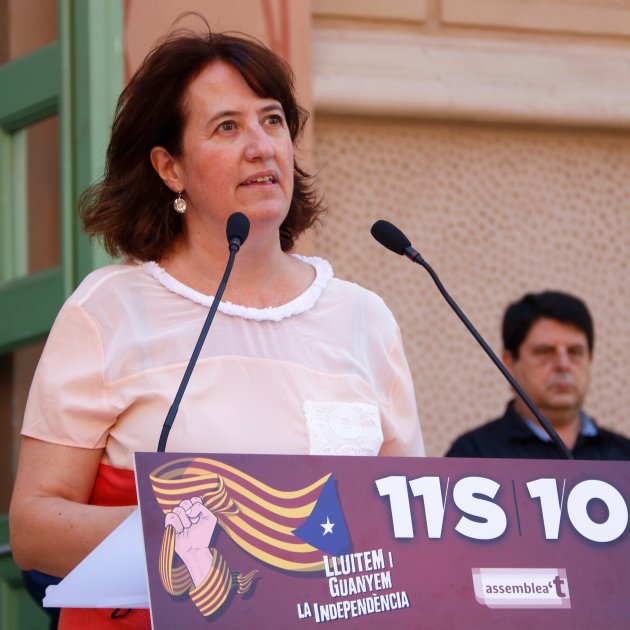This year's Diada - the Catalan National Day, on September 11th - has its own unique context: it will be the scene-setter for a week in which the Catalonia-Spain dialogue table on the political conflict is due to meet again. A dialogue table which the president of the Catalan National Assembly (ANC), Elisenda Paluzie, has few expectations about: the negotiation is nothing more than a "trap" set by Spain and a move intended to "weaken" the independence movement, she says.
That is why Paluzie believes that the demonstration organized by the ANC this September 11th - for the tenth year in a row - is so important, as it has to demonstrate to the political parties that "when we are thinking about the dialogue table, we aren't thinking about how to achieve independence." "The fewer people who get out on the street, the more is won by those who want a false normality," said the ANC president this Wednesday in an interview with Catalunya Ràdio.
Against the Catalan government and its parties
“I take the failure of the table for granted, in terms of obtaining a negotiated referendum,” affirmed Paluzie. Thus, the negotiation between governments is a "trap", as it is very clear that the Pedro Sánchez executive will only offer minor reforms in terms of powers and repression. She also criticized the Catalan government's initiative, the Agreement for Self-Determination and Amnesty, which will only serve to "strengthen the Catalan position" in the dialogue.
In this line, the ANC president criticised the Catalan government parties, which have lost their strategic unity and have "different roadmaps that create tensions" within independence. That is, she pointed a finger at ERC, JxCat and the CUP as among those most responsible for the demobilization of the independence movement.
Denies pressures to lift Covid restrictions
This year's Diada demonstration, then, needs to be used to tell the parties to create "a common project again" to achieve self-determination. “Until there is a project in which we all move together once again, we will not be able to achieve independence,” she remarked.
Paluzie also responded to the head of law and order for the Barcelona city council, Albert Batlle, who on Wednesday accused the ANC and other organizations of pressuring the Catalan government to lift the Covid restrictions affecting fundamental rights just before the celebration of Catalonia National Day. The ANC president has assured that from early on in planning it was clear that the demonstration would be in motion - rather than being a static protest in a single location - since no measure has ever been published in the Catalan official gazette that would affect the mobilizations.
Route of the Diada march 2021 / ANC
On the other hand, she affirmed that all possible measures will be taken to minimize Covid-19 risks in the demonstration. Paluzie recommended the use of masks during the march and announced that every effort will be made to ensure safe distancing, in order to avoid congestion.
The demonstration will have a classic route, which will take place in "a traditional [Diada] demonstration location, near the Fossar de les Moreres", the mass grave and memorial near Santa Maria del Mar church for those who died in the defence of Barcelona on September 11th, 1714. “Since we have returned this year, this area seemed like the most natural to us,” she concluded.
Last year's Diada featured a large number of small protests, static and distanced, in many different locations around Catalonia.
Main image: ANC president Elisenda Paluzie / ACN
